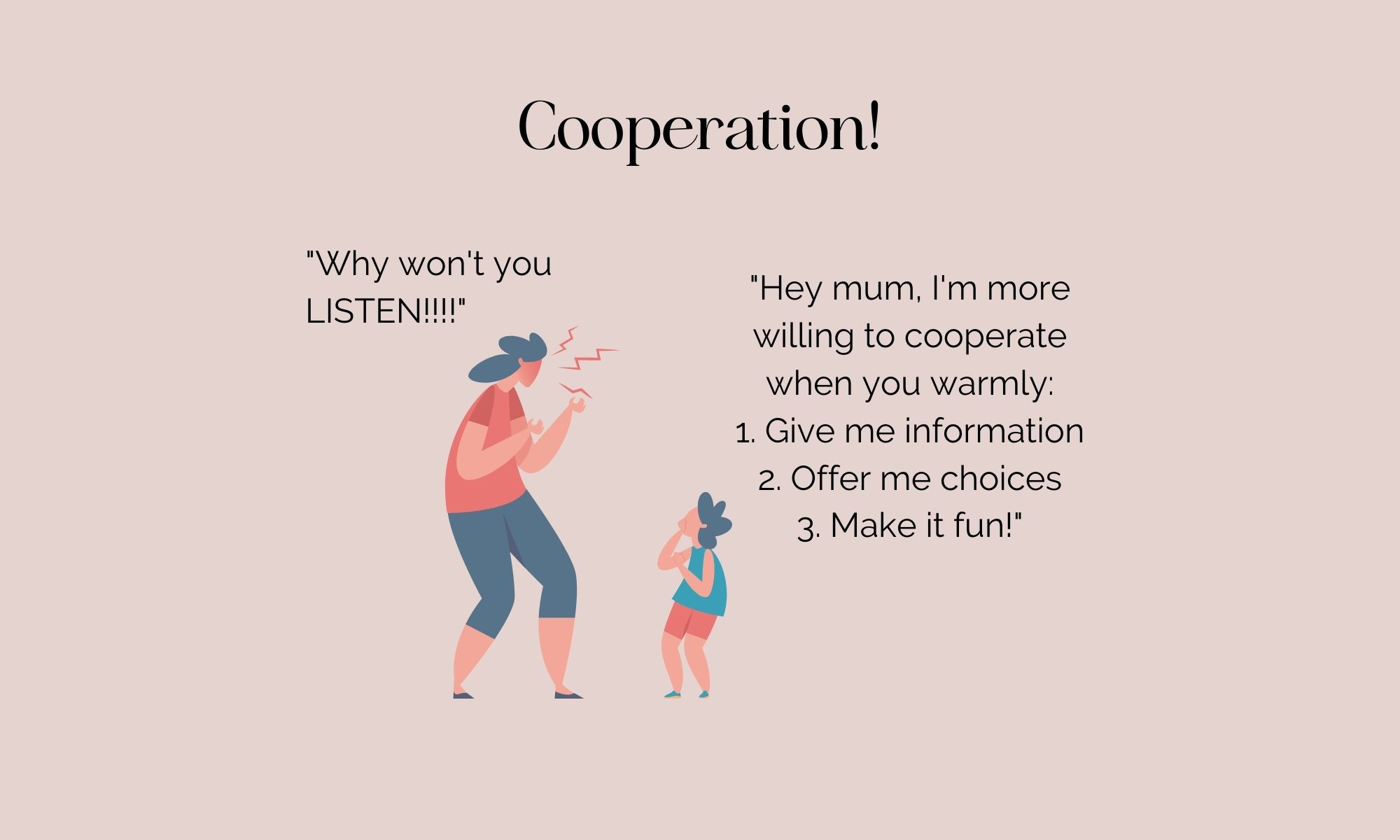If you were at a job, and your ‘boss’ came to you and said in a rushed and tense way;
“Right, today you have to do this new project. You must start it now.”
Would you feel willing to do it?
But how about if she came and said in a warm and relaxed tone;
“Guess what! That new project came in for us to do today. I know that you aren’t interested in this campaign; I so understand – I find it pretty boring too!
However, company really want it done today. So I want to make it fun. I’ve asked Polly if she is willing to join in too, and I thought we could all do it together.
I’ve brought superfood smoothies for us and I thought we could have some dance breaks.
Would you be willing to join in with Polly and me? If so, which part of it do you want to work on?
Would you be more likely to be willing?
Sometimes we can forget that many of the things that are important to us are not important to children.
So often we ask them to do things because of our own needs, or because of cultural conditioning and societal norms, as well as our needs for their safety and wellbeing.
Children are much more likely to be willing to cooperate with us in doing something we want them to do if they:
A | Feel connected with us;
(We cam connect in with our breathing, get close, offer eye contact, and express our request in warm tones.)
B | Understand the reason for the request:
(We can give information about why we are asking them to do that thing)
C | Have a sense of choice and autonomy;
(In our language and energy we can communicate our respect for those needs – “are you willing?” and avoiding, “you have to, you should, you ought to, you must.”)
D | Are feeling relaxed and happy;
(If they’re feeling tense and have painful feelings bubbling, it’s hard for them to be willing to cooperate. Play helps them release painful feelings, as does listening to those feelings. This helps them feel more relaxed and more connected with their natural willingness to cooperate.)
E | Can have fun doing it;
When we find ways of making the thing fun, they’re much more likely to be willing to do it.
Aletha Solter, the founder of Aware Parenting, has a lovely list of three things to remember when you are wanting cooperation:
1 – Give information
2 – Give choices
3 – Make it fun!
If you’d like to dive deeper into attachment play, you might be interested in my ATTACHMENT PLAY COURSE!
